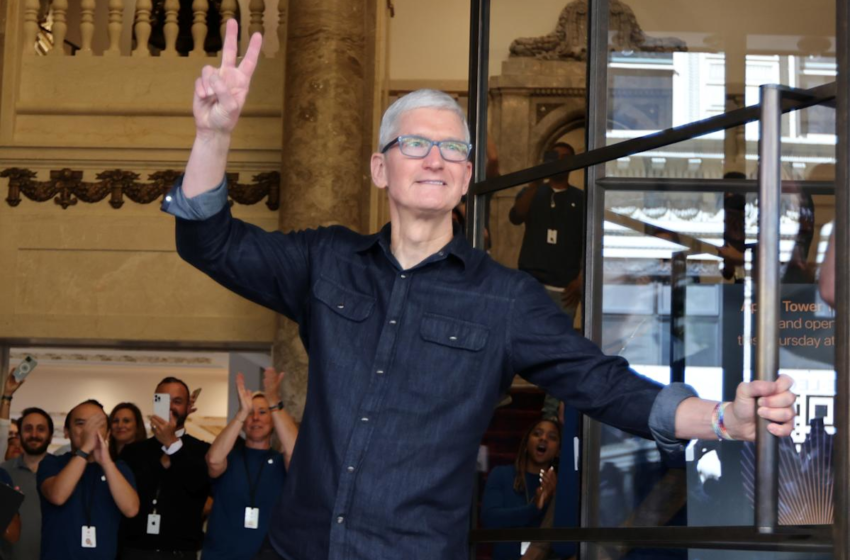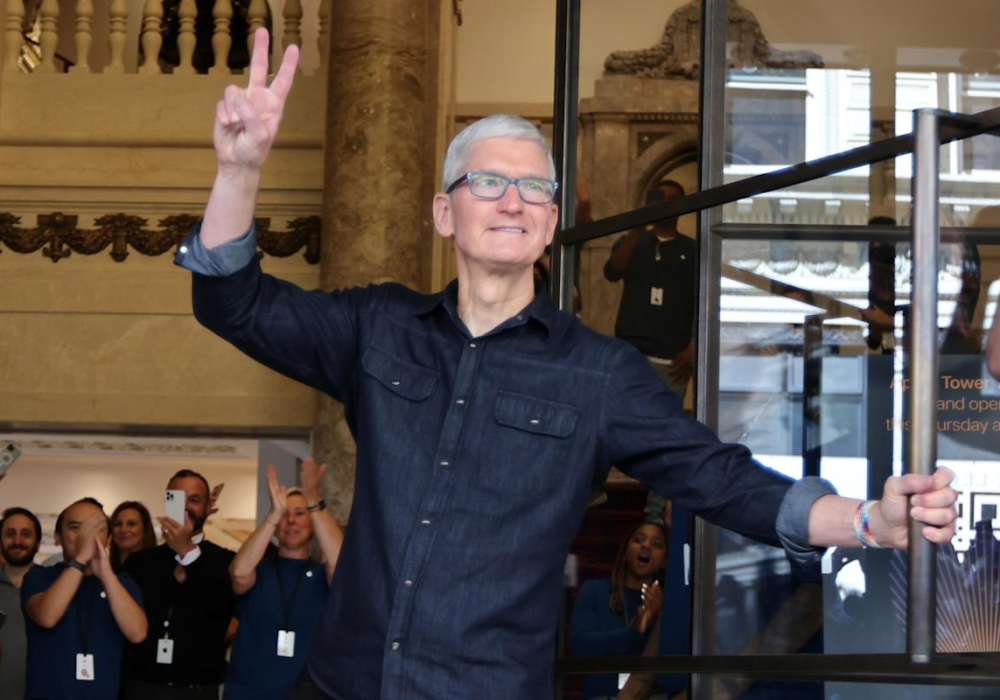This article was first featured in Yahoo Finance Tech, a weekly newsletter highlighting our original content on the industry. Get it sent directly to your inbox every Wednesday by 4 p.m. ET. Subscribe
Wednesday, December 8, 2021
If AR and VR headsets are going to go mainstream, Apple will be the one to do it
While the 3-D internet world known as the metaverse has become the biggest tech buzzword of 2021, the virtual reality and augmented reality headsets needed to enter that world have been slow to take off.
Sure, Facebook parent Meta (FB) has sold roughly 4 million of its Oculus Quest 2 headsets, but we’re nowhere near mass market adoption. Think about it. How many of you, your friends, or your family members own VR headsets? And how many of those that own them actually use them more than a few times a year?
That, however, may soon change, with Apple (AAPL) reportedly set to launch its own headset sometime in 2022. According to Bloomberg’s Mark Gurman, the headset will focus on gaming, communications, and media consumption. It’ll also be rather pricey, reportedly costing upwards of $3,000, and will take some time to come to market following its debut. Think the Apple Watch, which debuted in September 2014 before going on sale in April 2015.
But if any company is going to bring VR and AR to the mainstream, Apple can do it. It’s essentially the company’s M.O. at this point. Take an existing product and perfect it to the point that consumers of all stripes want it. Need proof? Look no further than what the company did for the smartwatch and wireless earbud industry. Not to mention smartphones.
“They obviously have the expertise to do this hardware and software and networking,” Loup Ventures managing partner Gene Munster told Yahoo Finance. “I think that as long as they can anchor it in a valuable experience, they’re going to be successful.”
But Apple isn’t the only contender to be the headset of choice for millions of global consumers, especially since the metaverse will at least partially require one. And the fight could take years before we have a winner.
Apple has a track record of bringing tech to the mainstream
AR and VR headsets have been on the market for a few years now. There are the standalone units like the Oculus Quest 2, PC-connected models like HTC’s Vive Cosmos Series, and smartphone-powered systems like Samsung’s since-discontinued Gear VR line. But none of those headsets have penetrated the mainstream.
Apple, with its balance sheet, hardware capabilities, and software expertise could, however, be the company that actually brings the technology to the masses in an appealing way. Look at smartwatches, for instance.
Yes, there were a number on the market before Apple launched its first Apple Watch in 2015. And while it wasn’t initially a success, Apple’s decision to market the watch as a health and fitness accessory turned it into the best-selling smartwatch in the world with 31% of the global market share, according to Canalys.
Apple similarly turned its AirPods into best-sellers, even though a handful of similar products already existed. The tech giant, and its Beats brand, now account for 26.5% of global true wireless earbud market share, Canalys reports.
It’s also worth pointing out that Apple has that elusive cool factor that draws people to its products. I mean, it’s no coincidence that Apple brings out celebrities at its product launch events. After all, the AirPods and Apple Watch are just as much statement pieces as they are utilitarian products.
It stands to reason then that Apple could provide the same kind of boost to the AR and VR headset industry.
“I think similar to what Apple did with the phone, the watch, the earbuds, they’ll raise the profile for the industry as a whole and enable others, including competitors, to further open up the market opportunity,” Gartner senior principal analyst Tuong Nguyen told Yahoo Finance.
It’ll take some killer apps too
While Apple has proven that it can make and market devices that people get hooked on, the key to ensuring its AR and VR efforts pay off will be third-party apps.
Apple’s iPhone is a premium smartphone, but take away the utility of the 1.8 million apps available through the App Store, and its value starts to sink rather quickly. Without apps like Uber, TikTok, Facebook, Slack, and the thousands of games out there, it’s far less appealing.
“The real unlock on the phone was the App Store, and that was largely outside of Apple’s power,” Munster said. “I think it’s the same with mixed and augmented reality.”
There are already a number of games available on VR and AR headsets. Heck, that’s been the main reason for purchasing them to this point. To reach the mainstream, headsets will have to offer more than just the ability to play “Beat Saber” or stream movies.
That, according to Nguyen, though, could take anywhere from five to 10 years.
“The technology needs to advance a little bit more before we start seeing it, at least the content, be more appealing to the mass market,” he explained. “As you start to build up those use cases, build up those examples of those applications, that’s when we start to see the mass market.”
Apple is staring down a determined competitor
While Apple has a history of making devices that draw millions of consumers, it will have to contend with a rival that has a deep war chest and desire to dominate the market: Meta.
The recently renamed version of Facebook has made it its mission to control the AR and VR market on its own terms. The company’s new name is a reference to the metaverse, which it hopes to build out via its own hardware and software.
Meta is also driven by a desire to get out from under the foot of smartphone makers like Apple, which can directly impact its own business. Apple’s recent iOS privacy changes, for example, have become a point of contention for Facebook, as they limit how closely the service can track iOS users.
Building out its own platform from hardware through to the software, Meta would cut off any potential interference from third parties like Apple. And Meta is already on track to release its next-generation headset, codenamed Project Cambria, in 2022.
That’s not to say Apple isn’t equally determined. CEO Tim Cook has repeatedly called out AR as a transformational technology, and has been working it into its iPhone and iPad cameras for years.
If Apple can show off its own AR/ VR system with a lineup of apps and a connected app store, it will be able to go toe-to-toe with Meta, and could very well come out on top in the race for headset dominance. In the process, Apple could become the tech company that makes the metaverse a reality.
By Daniel Howley, tech editor at Yahoo Finance. Follow him @DanielHowley
Read the latest financial and business news from Yahoo Finance
Follow Yahoo Finance on Twitter, Instagram, YouTube, Facebook, Flipboard, and LinkedIn










